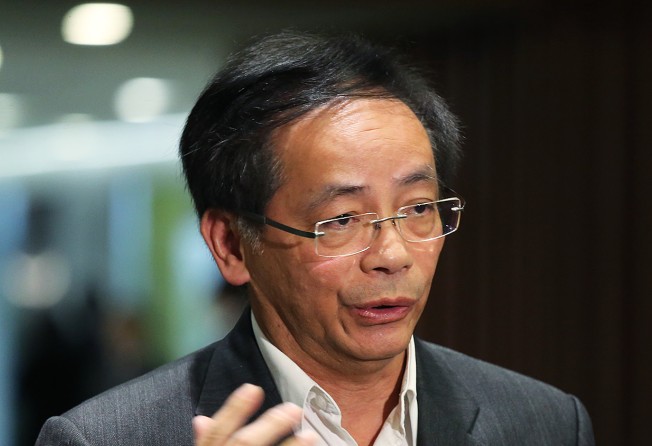NPC deputy says Beijing should better educate its law enforcement agents on not operating in Hong Kong
At NPC and CPCC session next month, city’s biggest pro-Beijing party will also discuss improved notification mechanism in wake of Lee Po case, as well as co-location of high speed rail immigration checkpoints

After the mysterious disappearance of bookseller Lee Po, Beijing should “step up on educating its law enforcement officers” that it is illegal for them to operate in Hong Kong, the city’s biggest pro-Beijing party urged on Thursday.
National People’s Congress deputy Ip Kwok-him, from the Democratic Alliance for the Betterment and Progress of Hong Kong, said he would also urge Beijing to improve the notification mechanism between mainland and Hong Kong authorities, after it took a month for Guangdong police just to confirm that Lee was assisting in an investigation in the province.
These are among the 22 proposals that the DAB will make during the annual meeting of the two legislative and consultative bodies of China, the NPC and the Chinese People’s Political Consultative Conference, in Beijing next month.
After going missing in Hong Kong at the end of last year, Lee, who sold books critical of the Chinese leadership, was widely believed to have been abducted by mainland officers, although he allegedly wrote letters to deny this.
Earlier this week, it was reported that Lee could face more than 10 years behind bars for allegedly “blackmailing” the subjects of the books his store published.
Ip said education was important as it was not enough for officials to know that it was unlawful to enforce mainland laws in Hong Kong.
“To implement this rule under the ‘one country, two systems’ principle, we need law enforcement officers to understand the law more clearly as well,” he said.
“We will also discuss this when we have the chance to the meet the relevant authorities in Beijing,” he said.
Apart from discussions involving Lee’s case, Ip said his party would also urge the central and local governments to come up with a co-location proposal that would not contravene Basic Law and the “one country, two systems” principle.
The Hong Kong government is asking the Legislative Council to approve an extra HK$19.6 billion in funding for a high-speed rail link from West Kowloon to Guangzhou, but pan-democrats fear that the co-location of mainland and Hong Kong immigration officials at a joint checkpoint would set a precedent for mainland officers to exercise powers in the city.
The NPC and CPPCC’s annual session lasts from March 1 to 16, but Ip said the local delegates would need to return to Hong Kong if the Legco’s finance committee decided to meet on March 11 and 12 to debate on the funding.